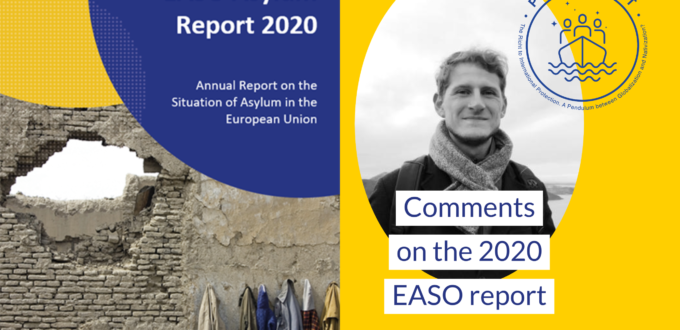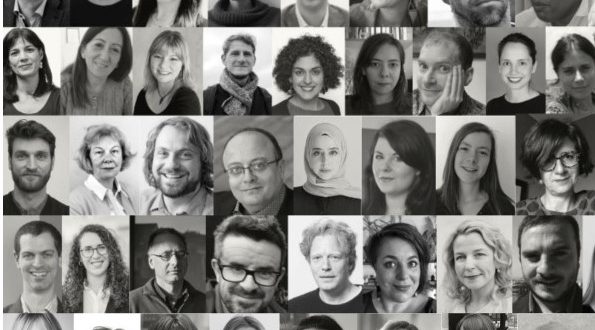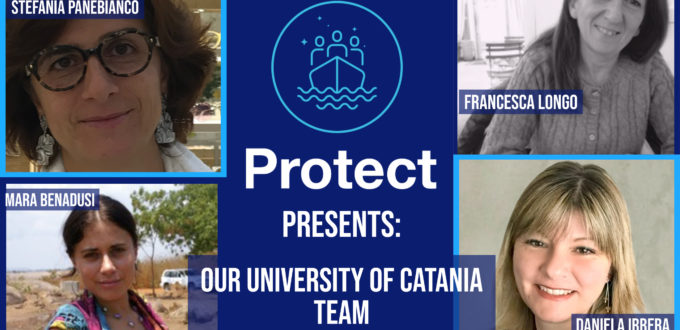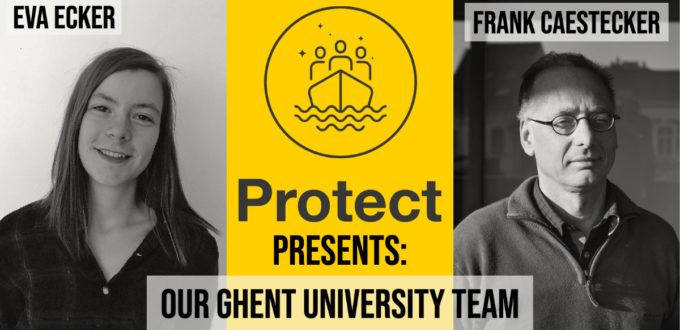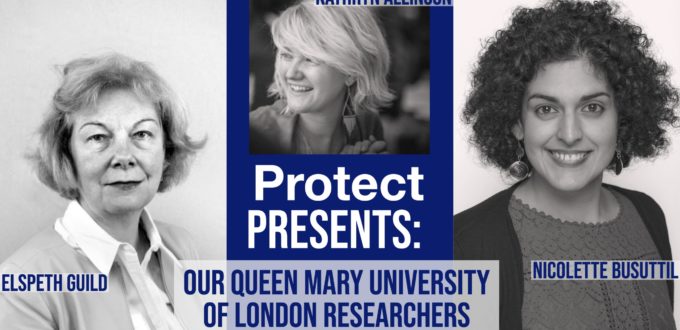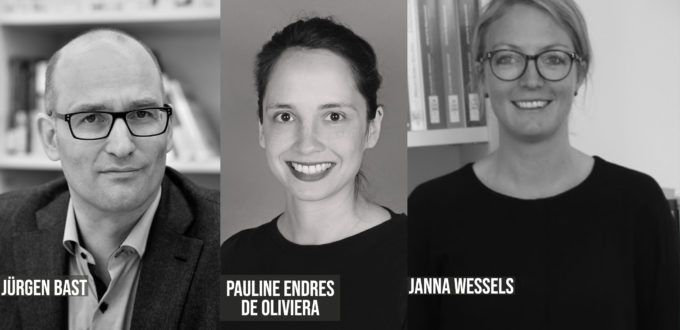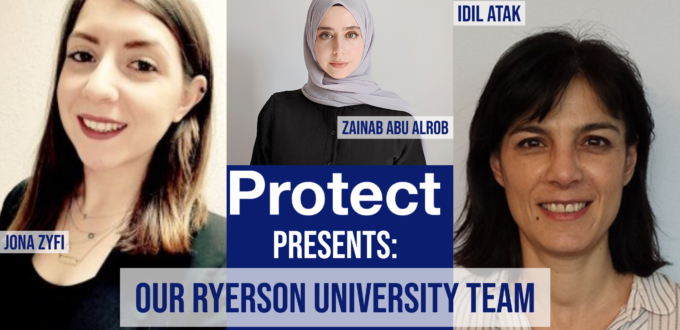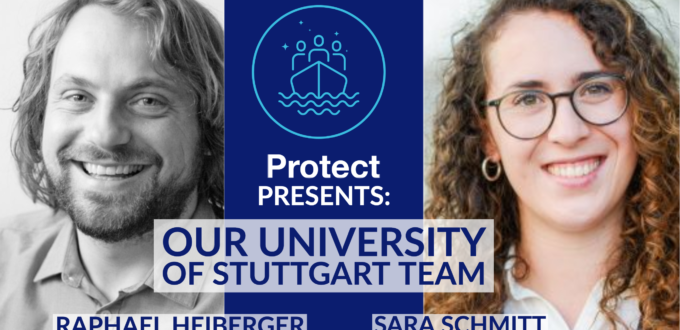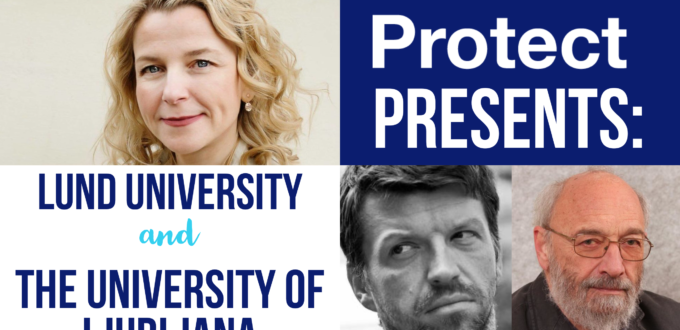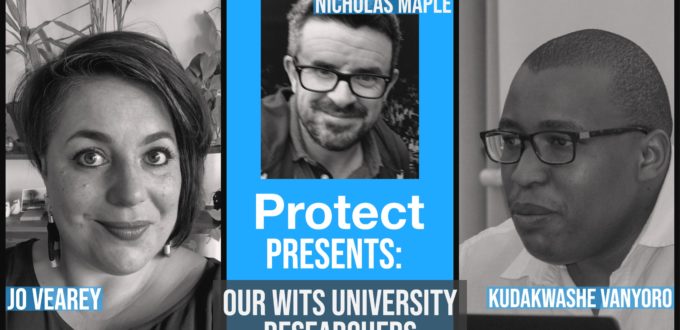The European Asylum Support Office’s (EASO) annual report on the situation of asylum in the European Union is a must-read for everyone interested in refugee issues with a focus on the EU+ area. The document covers 2019 trends but it does not seem to talk about another epoch: rather the opposite. Here are but a few extracts from its wealth of data
Who are the PROTECT researchers?
PROTECT partner presentations: The University of Catania
Meet PROTECT’s four researchers from the University of Catania, whose home ground on the island of Sicily is situated at the very front line of the European Union’s migration ports. Through the leadership of Professor Francesca Longo, the team studies the EU’s external migration relations and the impact of the Global Compacts on the work of CSOs and groups in need of international protection in their region.
PROTECT partner presentations: The Ghent University
Does the institutional location of states’ asylum agencies matter for the quality of their asylum determination? How does states’ institutional re-shuffling of their asylum agencies affect refugees’ right to international protection? These are the questions that PROTECT’s Belgian team from Ghent University seeks to answer as they study the impact of the Global Refugee and Migration Compacts on the governance of international protection. Leading the research is Professor Frank Castecker, on his team is also Ph.D. fellow, Eva Ecker.
PROTECT partner presentations: The Queen Mary University of London
The Queen Mary University of London is one of PROTECT’s two UK-based teams. The team is led by the distinguished EU law and migration expert Elspeth Guild, joining her are the aspiring law scholar Kathryn Allinson and Nicolette Busuttil. Together, the team has followed the processes surrounding the UN Compacts on Migrants and Refugees closely and explored their potential in advancing the international protection system.
PROTECT partner presentations: The University of Giessen
Meet PROTECT’s team of legal scholars from the Justus Liebig University Giessen in Germany, led by one of Europe’s leading experts in migration law, Professor Jürgen Bast. Bast’s team explores the legal implications of the Global Compacts on Refugees and Migrants and how they as young soft-law instruments interact with pre-existing legal frameworks.
PROTECT partner presentations: The Toronto Metropolitan University
The Ryerson team is led by Associate Professor Idil Atak, joining her are the early career Ph.D. fellows, Zainab Abu Alrob, and Jona Zyfi. Together, they will drive the Canadian-oriented research of PROTECT, involving fieldwork among migrants and refugees in Canadian cities and co-leading PROTECT’s dissemination and engagement work.
PROTECT partner presentations: The University of Stuttgart
Two researchers from the Institute for Social Science at the University of Stuttgart, Germany are part of the international PROTECT consortium: Tenure-track Professor, Raphael Heiko Heiberger, and Research Assistant, Sara Schmitt. By applying their knowledge of computational methods, the Stuttgart team will contribute to analyzing how global media discourses on refugee protection and citizens’ attitudes towards the Global Compacts’ burden- and responsibility-sharing aspects shape political decision making.
PROTECT partner presentations: The University of Ljubljana and the Lund University
By the means of AI-driven technology, PROTECT’s two teams from the University of Ljubljana in Slovenia and Lund University in Sweden will map actors and discourses present in traditional media and social media currently shaping the discourse on international protection on refugees.
PROTECT partner presentations: The University of the Witwatersrand
Joining the international PROTECT consortium from Wits University are Associate Professor and Director of the African Centre for Migration & Society, Jo Vearey, Dr. Nicholas Maple, and Dr. Kudakwashe Vanyoro.

